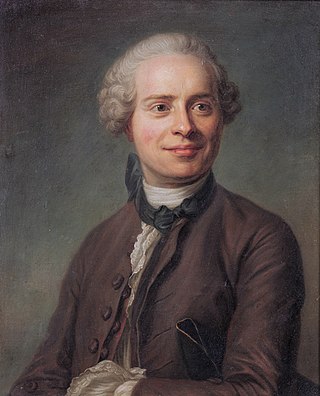
Jean-Baptiste le Rond d'Alembert was a French mathematician, mechanician, physicist, philosopher, and music theorist. Until 1759 he was, together with Denis Diderot, a co-editor of the Encyclopédie. D'Alembert's formula for obtaining solutions to the wave equation is named after him. The wave equation is sometimes referred to as d'Alembert's equation, and the fundamental theorem of algebra is named after d'Alembert in French.
"Tlön, Uqbar, Orbis Tertius" is a short story by the 20th-century Argentinian writer Jorge Luis Borges. The story was first published in the Argentinian journal Sur, May 1940. The "postscript" dated 1947 is intended to be anachronistic, set seven years in the future. The first English-language translation of the story was published in 1961.
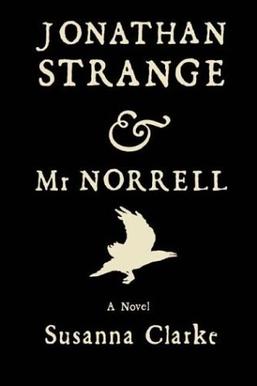
Jonathan Strange & Mr Norrell is the debut novel by British writer Susanna Clarke. Published in 2004, it is an alternative history set in 19th-century England around the time of the Napoleonic Wars. Its premise is that magic once existed in England and has returned with two men: Gilbert Norrell and Jonathan Strange. Centred on the relationship between these two men, the novel investigates the nature of "Englishness" and the boundaries between reason and unreason, Anglo-Saxon and Anglo-Dane, and Northern and Southern English cultural tropes/stereotypes. It has been described as a fantasy novel, an alternative history, and a historical novel. It inverts the Industrial Revolution conception of the North–South divide in England: in this book the North is romantic and magical, rather than rational and concrete.
Rosier, according to the occultist Gustav Davidson in A Dictionary Of Angels (1967) is "a former lesser-rank angel of the order of dominations.", the cited source being Sebastien Michaelis' Admirable History of the Possession and Conversion of a Penitent Woman (1613).

The Time Traveler's Wife is the debut novel by American author Audrey Niffenegger, published in 2003. It is a love story about Henry, a man with a genetic disorder that causes him to time travel unpredictably, and about Clare, his wife, an artist who has to cope with his frequent absences. Niffenegger, who was frustrated with love when she began the novel, wrote the story as a metaphor for her failed relationships. The tale's central relationship came to Niffenegger suddenly and subsequently supplied the novel's title. The novel has been classified as both science fiction and romance.
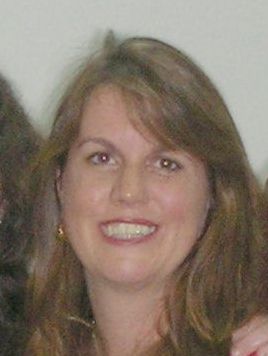
Elizabeth Johnson Kostova is an American author best known for her debut novel The Historian.
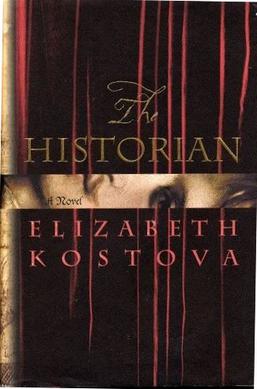
The Historian is the 2005 debut novel of American author Elizabeth Kostova. The plot blends the history and folklore of Vlad Țepeș and his fictional equivalent Count Dracula. Kostova's father told her stories about Dracula when she was a child, and later in life she was inspired to turn the experience into a novel. She worked on the book for ten years and then sold it within a few months to Little, Brown and Company, which bought it for US$2 million.
Martindale-Hubbell is an information services company to the legal profession that was founded in 1868. The company publishes the Martindale-Hubbell Law Directory, which provides background information on lawyers and law firms in the United States and other countries. It also published the Martindale Hubbell Law Digest, a summary of laws around the world. Martindale-Hubbell is owned by consumer website company Internet Brands.

The Ladies of Grace Adieu and Other Stories, published in October 2006 by Bloomsbury, is a collection of eight short stories by British writer Susanna Clarke, illustrated by Charles Vess. The stories, which are sophisticated fairy tales, focus on the power of women and are set in the same alternative history as Clarke's debut novel Jonathan Strange & Mr Norrell (2004), in which magic has returned to England. The stories are written in a pastiche of 18th- and 19th-century styles and their tone is macabre as well as satirical. The volume was generally well received, though some critics compared it unfavorably to Jonathan Strange.

Andrew Crumey is a novelist and former literary editor of the Edinburgh newspaper Scotland on Sunday. His works of literary fiction incorporate elements of speculative fiction, historical fiction, philosophical fiction and Menippean satire. Brian Stableford has called them "philosophical fantasies". The Spanish newspaper El Mundo called Crumey "one of the most interesting and original European authors of recent years."
Owen Philip King is an American author of novels and graphic novels, and a television film producer. He published his first book, We're All in This Together, in 2005 to generally positive reviews, but his first full-length novel, Double Feature, had a less enthusiastic reception. King collaborated with his father, writer Stephen King, in the writing of the women's prison novel, Sleeping Beauties and the graphic novel of the same name.

Théâtrophone was a telephonic distribution system available in portions of Europe that allowed the subscribers to listen to opera and theatre performances over the telephone lines. The théâtrophone evolved from a Clément Ader invention, which was first demonstrated in 1881, in Paris. Subsequently, in 1890, the invention was commercialized by Compagnie du Théâtrophone, which continued to operate until 1932.
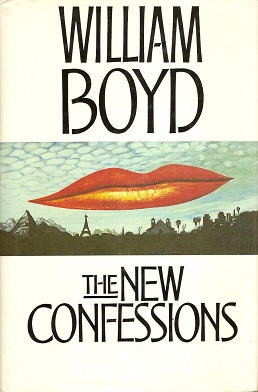
The New Confessions is the fourth novel by the Scottish writer William Boyd published in 1987. The theme and narrative structure of the novel is modelled on Jean-Jacques Rousseau's Les Confessions, the reading of which has a huge impact on the protagonist's life.

Susanna Mary Clarke is an English author known for her debut novel Jonathan Strange & Mr Norrell (2004), a Hugo Award-winning alternative history. Clarke began Jonathan Strange in 1993 and worked on it during her spare time. For the next decade, she published short stories from the Strange universe, but it was not until 2003 that Bloomsbury bought her manuscript and began work on its publication. The novel became a best-seller.

The Secret Knowledge (2013) is the seventh novel by Scottish writer Andrew Crumey. It was his first since returning to his original UK publisher Dedalus Books, and was awarded a grant by the Arts and Humanities Research Council. Part of the writing was done while the author was visiting fellow at the Institute of Advanced Study. It was longlisted for the Guardian's "Not the Booker" prize.
Andrew Campbell is a Scottish academic, solicitor, writer and editor specialising in the fields of international banking and finance law. He currently is a professor of international banking and finance law at the University of Leeds, England. He regularly acts as Consulting Counsel for the International Monetary Fund, Washington D.C. In 2007 Campbell became a member of the advisory panel of the International Association of Deposit Insurers.

Music, in a Foreign Language is the first novel by physicist Andrew Crumey, published by Dedalus Books in 1994. It won the Saltire Society First Book Award for that year, in a ceremony broadcast on STV.
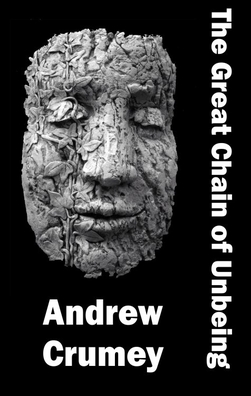
The Great Chain of Unbeing is the eighth fiction book by Andrew Crumey, published by Dedalus Books in 2018. It was shortlisted for Scotland's National Book Awards and nominated for the British Science Fiction Awards. The title alludes to the great chain of being and the book consists of stories that range widely in theme and style but are subtly linked. The book has been variously interpreted as a short story collection or novel.

D'Alembert's Principle is a novel by Andrew Crumey, and the second in a sequence of three set wholly or partly in the eighteenth century. It is in three sections, subtitled "Memory, Reason and Imagination". The U.S. edition was subtitled "A novel in three panels". It has been translated into French, German, Dutch, Spanish, Greek, Russian, Italian, Turkish and Romanian. It prompted El Mundo (Spain) to say "Crumey is one of the most interesting and original European authors of recent years."

Beethoven's Assassins is a novel by Andrew Crumey, nominated by publisher Dedalus Books for the 2023 Booker Prize. It imagines Beethoven being commissioned by a masonic lodge to write an opera about the Order of Assassins, called "The Assassins, or Everything is Allowed". The opera's subtitle comes from "Nothing is true and everything is allowed", which was the Assassins' secret doctrine according to Beethoven's acquaintance Joseph von Hammer-Purgstall.















